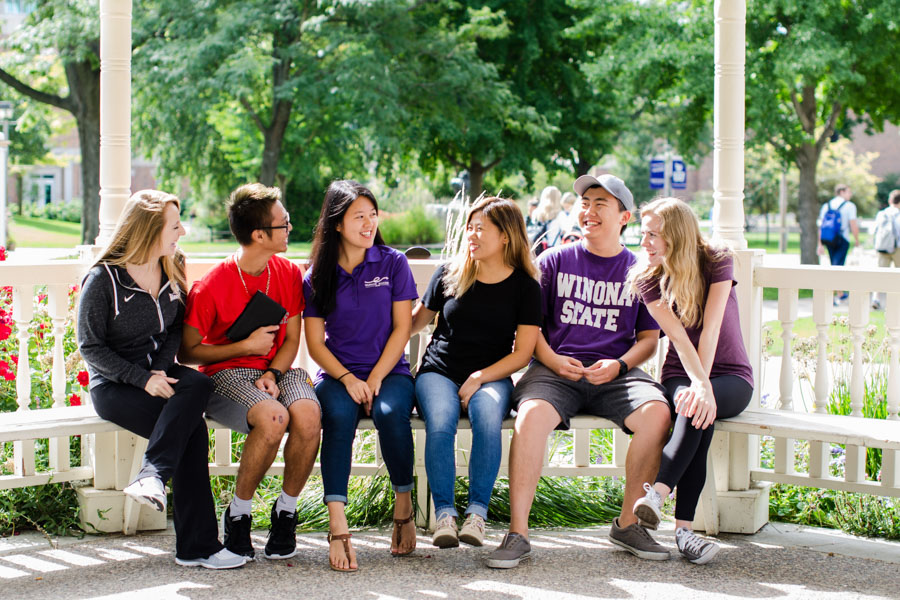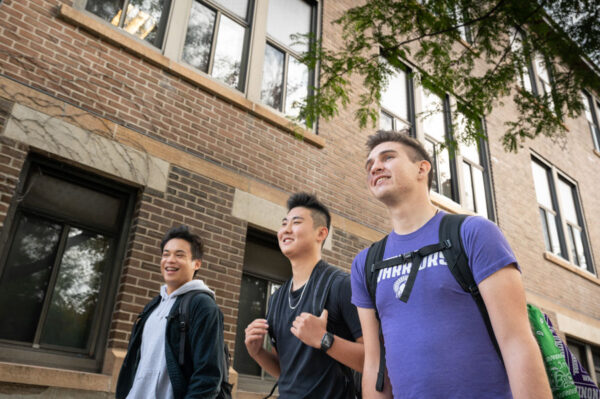
Sociology
Bachelor's, Transfer Pathway
PROGRAM SNAPSHOT
Make the community your classroom. See a situation from multiple perspectives. Understand people and society to enact great change.
If you like to get to know people, hear their stories, and understand how we all interact as a society, you can foster these interests by studying sociology.
Sociologists set aside their own assumptions and see the big picture.
For example, while some assume that people are poor because they don’t work hard enough, sociologists consider how the job market, illness, disability, discrimination, and other larger social factors influence a person’s poverty status.
This same way of thinking applies to how people’s lives are shaped by their experiences of gender and sexuality, race and ethnicity, social class, disabilities, and other social issues.
The Sociology major through WSU’s Department of Sociology & Criminal Justice is intended for students who want to reflect on their own experiences through a sociological lens and advocate for others.
As a Sociology major, you’ll strengthen your critical thinking, problem solving, communication, and teamwork skills.
You’ll also:
- learn about the history and consequences of social inequalities
- explore what affects the ideas, identities, and life courses of individuals and groups
- gain hands-on experience using social research methods to analyze data and address social issues
Your coursework will prepare you for employment in a variety of fields, such as social service, business, education, health care, and government. You’ll also be ready to pursue graduate studies.
Aside from major- or minor-specific requirements, you’ll need to complete additional requirements through the General Education Program (GEP) to earn your degree from Winona State University.
Learn More about the GEP
You’ll complete a 360-hour internship during your final semester in this program.
You could find yourself interning at local social service agencies, like Big Brothers Big Sisters of America and Volunteers of America. Or non-profit meal programs, like Loaves and Fishes. Or even county government offices, corrections facilities, and home healthcare facilities.
You can intern outside the region or across the pond, from Disney World in Florida to Italy’s Joel Nafuma Refugee Center to an orphanage in the Philippines.
Before you graduate, you can do an extensive community research project.
A client from the community will visit your upper-level research class and describe an issue they need to address.
You’ll work with your classmates to create a survey or an evaluation tool, administer it to the correct populations, analyze the results, and formally present your recommendations to the client.
Several community-wide decisions have been made because of Sociology students’ results. Like offering single-sex bathrooms at the Bluff Country Co-op and influencing the design of its expansion.
You can expand your class research and further hone your skills by pursuing a faculty-guided research project.
Create an engaging poster and share your findings with others at professional conferences in the local and regional area.
Previous topics that students have explored include the sociology of names and religion and the concept of emerging adulthood.
Apply what you learn in the classroom by traveling the world. At WSU, you can earn credit that applies to your degree while exploring the globe.
Explore Berlin’s transformative shift in visual communications and the court and criminal justice systems in England and Scotland.
Or see the Himalayas up close, enjoy an elephant safari ride, and compare rural and urban areas in Nepal.
Complement your studies and meet other students who are passionate about sociology through a handful of campus clubs and organizations.
Like Alpha Kappa Delta honor society, Active Minds, Circle K International, and Dream Closet. Or Racial Integration & Cultural Enrichment (RICE) Club, Unified Warriors, and Winona State Volunteer Club.
Survey researchers design surveys to study people’s opinions, beliefs, wants, and needs. These evaluations can cover many different topics, like health care, education, politics, and culture.
Market research analysts then use this data to target the right consumers and increase sales for a company’s products or services. According to the Bureau of Labor Statistics, there’s a demand for more market research analysts. This profession is expected to grow 19% by 2031.
Market research analysts are also among the top 20 professions with the highest projected job growth rate for the next decade.

Bachelor's

Bachelor's, Transfer Pathway

Bachelor's, Transfer Pathway, Degree Completion